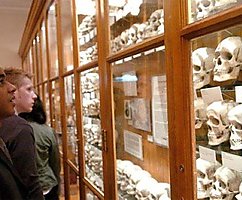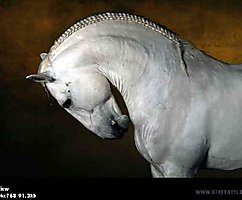Changing Greenland melting zone
 Bashny.Net
Bashny.Net
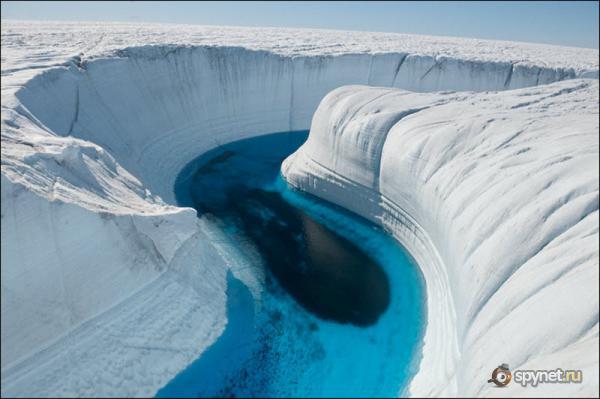
The June issue of National Geographic the main theme rooms set the stories about Greenland - the largest island of the Earth is covered with ice. Greenland belongs to the state of Denmark. The largest city in Greenland, Nuuk, there lives 15 thousand people. One of the articles of the magazine is devoted to the melting glaciers of the island. The photographer James Balog, whose illustrations are collected in this record, organized in 2006 a study of ice in Greenland and other large glaciers of the planet (EIS - Extreme Ice Survey). James and his colleagues established 35 special cameras that are powered by sunlight, moisture and have a windscreen and take pictures on a periodic basis. The camera takes one year from 4,000 to 12,000 images. Thus it happened that a kind of artificial eye, which allows to follow the evolution of the ice. Under the cut you can find a video about the work and the work of James and his team on the glaciers.

1. The dust brought by the wind froze the ice at the bottom of the canyon.
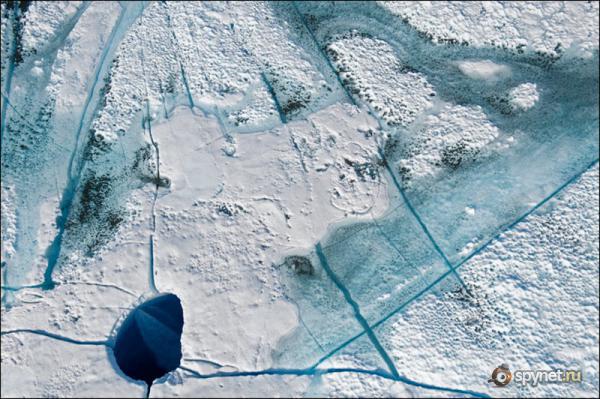
2. This picture was taken with vysoty150 meters, it clearly shows the channel through which the water flowed melting. All of it went into the round hole in the ice (dark spot).
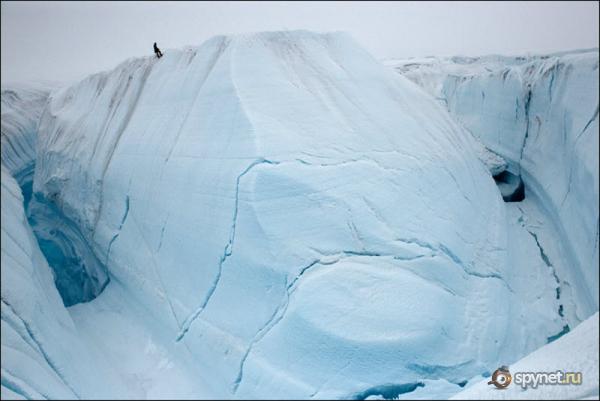
3. One of the friends of James down the canyon carved by meltwater.
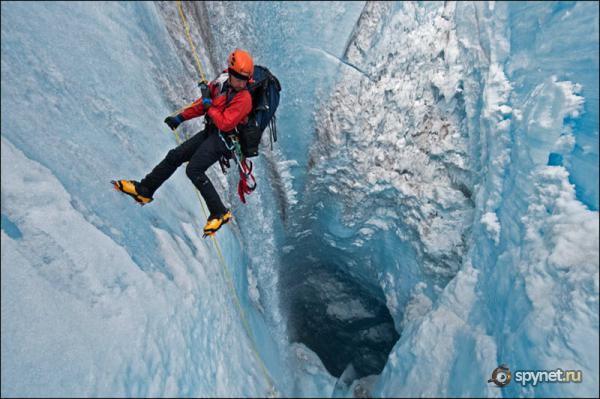
4. The operator EIS descends into a round hole in the glacier.
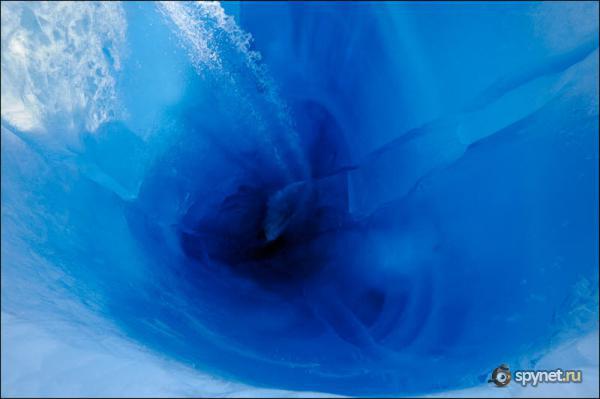
5. Melt water flows into the giant pit depth.
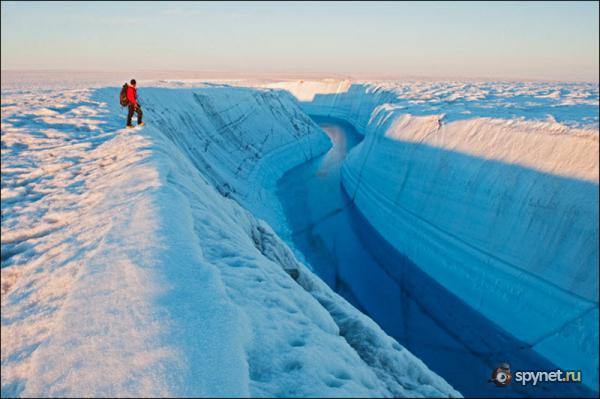
6. At the heart of Greenland, where ice thickness reaches 700 meters, meltwater grind out deep canyons.
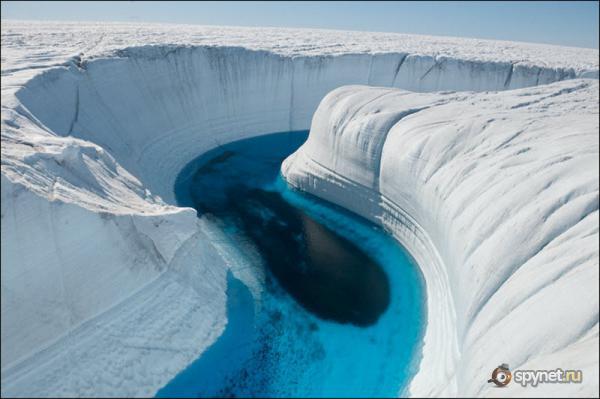
7. This canyon reaches a depth of 50 meters.

8. Black spot - a mixture of dust, ash distant fires, emissions from power plants and diesel engines. Dark spots on the glacier melting is accelerating.
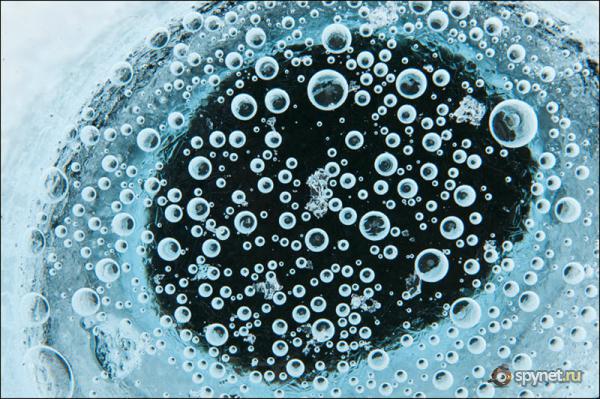
9. The air bubbles and a mixture of other gases are the waste products of bacteria.
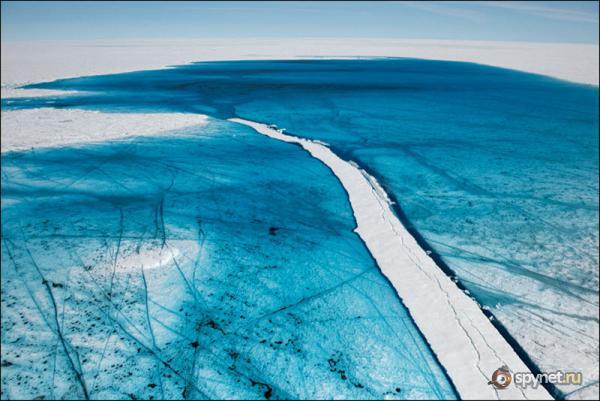
10. Summer meltwater drains into the lake.
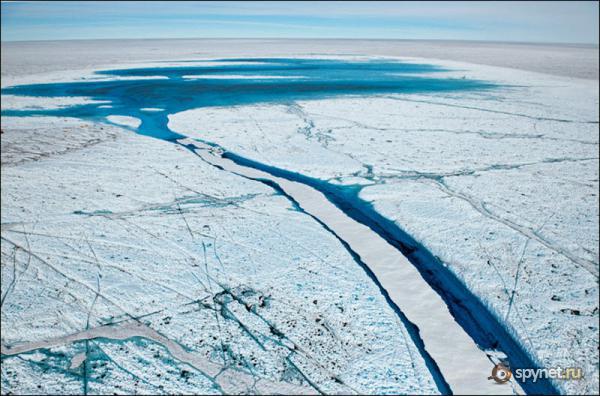
11. After a few days the water goes away, a few kilometers away opened well.
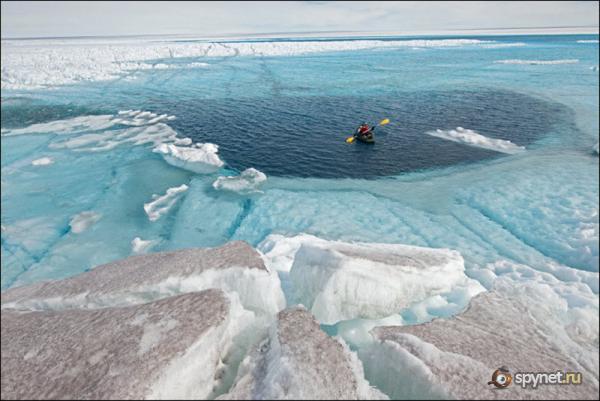
12. Around the well snow becomes darker as meltwater brings more and more coal dust.
Photo © National Geographic / Photograph by James Balog
Source: amelito.livejournal.com/348015.html
Tags
See also
Icy Beauty
Greenland
Greenland - the evolution of ice.
Global melting
Jungar Trap
The oldest civilization on our planet
Here we are rzhem, and glaciers are melting something!
Recursive Photo from NASA: an island in a lake on an island in a lake on an island
The Arctic: the vanishing North
